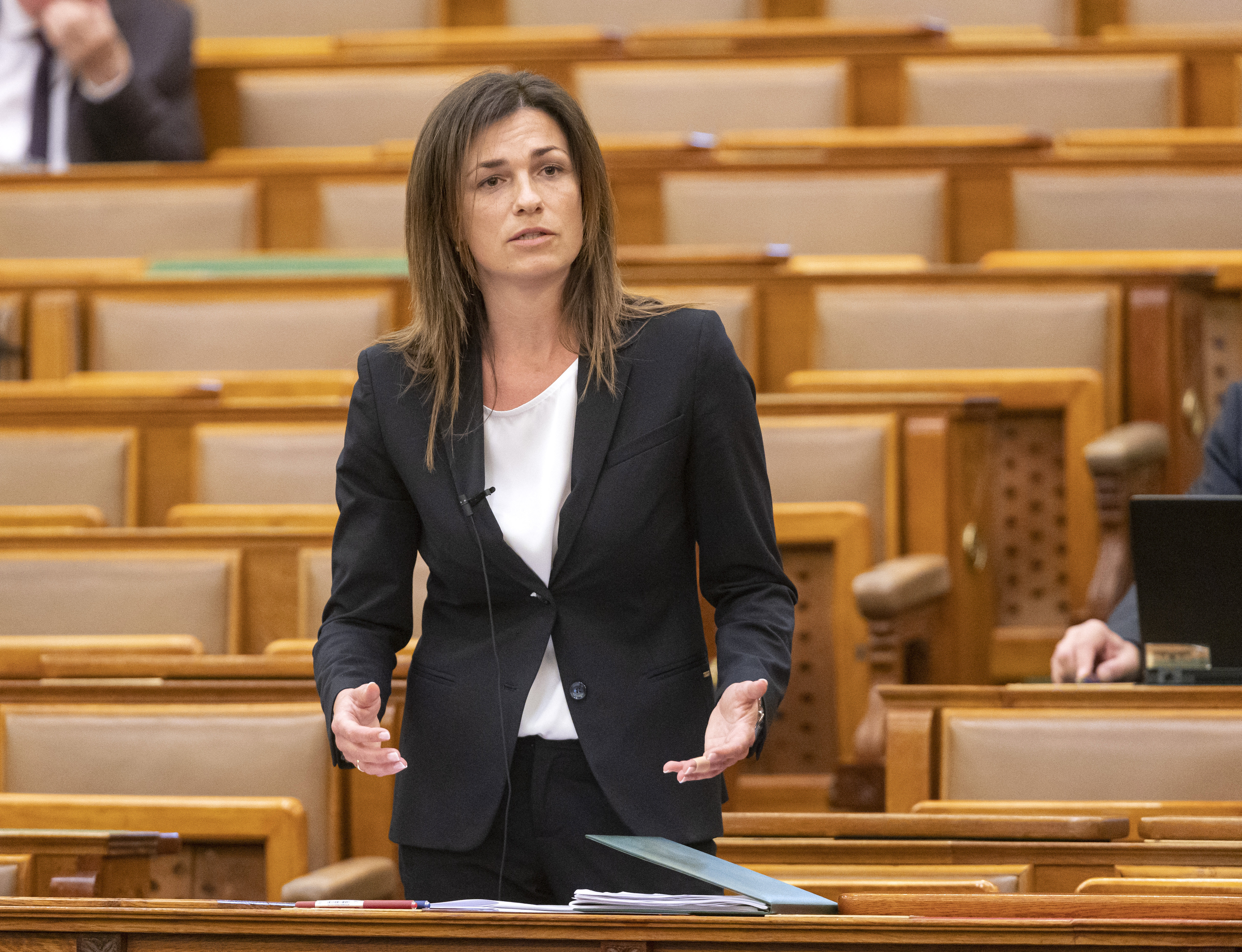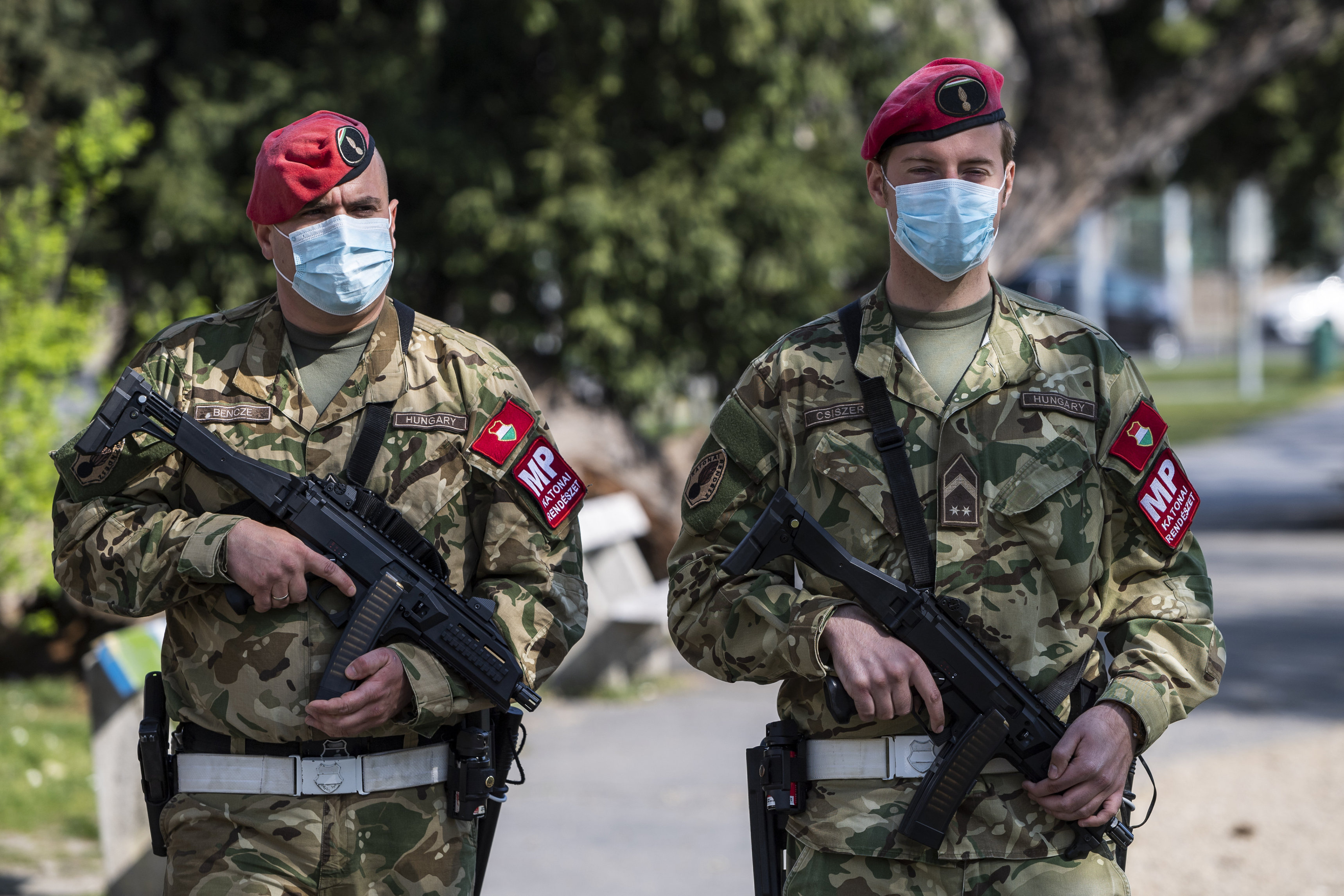Constitutional amendments and gay adoption ban proposed as lockdown hits Hungary
- Stay updated on the latest news from Hungary by signing up for the free InsightHungary newsletter:
A series of sudden and transformative legal changes were proposed late Tuesday as Hungarians waited for the government to provide details on the strictest pandemic lockdown measures yet imposed.
Parliament passed a bill Tuesday extending a state of emergency for 90 days and enacting new lockdown restrictions, which include an overnight curfew after 8 p.m.. moving high schools and universities to digital education, limiting restaurants to home delivery and closing shops at 7 p.m. (Read more details on the restrictions in our previous article here.)
Cities of over 10,000 may also mandate mask-wearing in public places as part of the measures. The lockdown will be in force for at least 30 days.
While the bill passed Tuesday afternoon with support from the opposition, details on the new rules were not published in the Magyar Közlöny, the government's official gazette, until 10:30 p.m., 90 minutes before they went into effect.
As Hungarians waited for information on what changes were coming to their lives the following day, Justice Minister Judit Varga submitted a proposal to amend Hungary's constitution, known as the Fundamental Law, in an apparent attempt to curtail the rights of LGBTQ people and to exempt public foundations run by government allies from scrutiny over their use of public funds.
Then, at one minute before midnight, Varga submitted another bill which would alter Hungary's election law, making it more difficult for opposition parties to enact their strategy of uniting against Fidesz in 2022 elections.
Here's a breakdown of the proposed changes and what they could mean for Hungary if they are passed, as expected, by Fidesz's supermajority in Parliament.
Constitutional amendments on family, gender and public funds
The draft bill proposing what would be the 9th amendment to the Hungarian constitution, written in 2011 by the second Orbán government, would enshrine religious doctrine in matters of marriage, gender and childrearing. The first paragraph of the constitution would retain a passage defining marriage as between a man and a woman, but would add language amending the legal definition of the family.
The passage would effectively bar same-sex couples from marrying or adopting children, and represents an unprecedented incursion into the nature of family life by the Hungarian government. (A separate bill submitted by Judit Varga on Tuesday would make changes to Hungary's laws on adoption, requiring that only married couples may adopt children unless granted personal special permission by Minister for Family Affairs Katalin Novák. This law could potentially prohibit not only same-sex couples but also unmarried individuals and unmarried straight couples from adopting children.)
Another change would enshrine a religious conservative conception of gender, and endow the state with the responsibility of instilling national and Christian values in children. It reads, "Hungary protects children's right to the gender identity they were born with and ensures their upbringing based on our national self-identification and Christian culture.”
In justifying the amendments, the draft bill states that “the ‘modern’ set of ideas which relativizes all traditional values, including the creation of two sexes (a woman and a man), is cause for increasing concern.” The text can thus be read as a constitutional rejection of non-conforming gender identities.
In an article for 444 on Thursday, Eszter Neuberger outlined how these legal changes serve only to further marginalize sexual minorities in Hungary, and represent a culmination of recent anti-LGBTQ rhetoric and legal maneuvers by government figures.
Additional amendments would redefine public funds as the revenues, expenditures and claims of the state, a narrow conception of public money which could allow for its misuse. If passed, the amendment could lead to public endowments to foundations set up by the government losing their legal status as public funds, allowing those foundations to use the money as they please without accountability to taxpayers and exempting them from public scrutiny or regulation.
Many such foundations, including the Matthias Corvinus Collegium Foundation (MCC) and numerous foundations of the Hungarian National Bank, were set up and run by figures connected to the governing party (and in some cases, government ministers and state secretaries), and have received massive endowments from the state. They are also in possession of major stock shares (such as 10% of shares of the state-owned energy company MOL and pharmaceutical company Richter, in the case of MCC) and substantial real estate assets.
Numerous universities have also been put under the control of foundations created by the government, including the University of Theatre and Film Arts (SzFE). The quasi-privatization led to a strike by professors and a 70-day blockade of the university by students.
The amendment would also require a two-thirds vote in Parliament to create, liquidate or change the operation or staffing composition of any such public foundations, ensuring that in the case of a change of government, existing foundations run by Fidesz-connected actors would retain control of their assets and leaders. These amendments would effectively constitutionalize the transfer of public wealth to the hands of recipients chosen by the governing party and eliminate any means for transparency or redress.
The timing of the proposed changes - one minute before new pandemic rules went into effect amid record-setting COVID deaths and hospitalizations - was criticized by opposition parties and other observers.
In an email to InsightHungary, a government spokesperson wrote that "the timing for the submission of the amendment is unrelated to the coronavirus pandemic."
But on Tuesday, Minister for Family Affairs Katalin Novák wrote on Facebook that "the constitutional amendment became necessary because of the coronavirus pandemic."
Changes to election law
At one minute before midnight on Tuesday, Justice Minister Judit Varga submitted a draft bill which would amend Hungarian election law to drastically disadvantage opposition parties in executing their strategy of unifying against Fidesz in 2022 elections.
The bill stipulates that only those parties which run a candidate in at least 50 of Hungary's 106 constituencies may field a national party voting list. While the official justification for the changes is prevention of pseudo-parties from running in elections, the move appears designed to hinder the opposition parties' declared intentions to unite behind a single joint candidate in each individual constituency.
If the law passes, this would force the parties to either abandon their strategy of running a single opposition candidate against each Fidesz candidate (a strategy which showed signs of effectiveness in 2019 local elections and at a by-election in February), or to unite in fielding a maximum of two party lists.
Still, the logistics of holding primaries to choose a candidate in each of the 106 constituencies and other election regulations would make fielding two lists nearly impossible. The bill, if passed, would therefore essentially force the opposition parties to overcome their ideological differences and mount a single national list in 2022, itself a task fraught with potential pitfalls.
The proposed changes to the law were seen by some observers as an attempt by the Orbán government (which itself authored the election law in 2011) to further tilt the playing field to its own advantage. In recent months, Viktor Orbán was said to have predicted a "near tie" in the 2022 elections, and electoral successes by the opposition last year may have led to broader anxiety within the governing party over a potential opposition win.
In October, Orbán's chief of staff Gergely Gulyás told reporters that the government did not plan any "significant changes" to the election law before 2022.
In a joint statement reacting to the draft bills, the opposition parties wrote,
"One of Orbán's desperate steps was to submit a draft proposal on changing the election law - without consultations, a year and a half before Parliamentary elections, and in a completely anti-democratic fashion. This too goes to show that Orbán doesn't feel safe even in the election system which he himself wrote for his own benefit ... Viktor Orbán has once and for all become unfit for his office. We demand that he withdraw the draft bills, and spend the rest of his time in office without stealing or dirty tricks."
Additional pandemic restrictions
In addition to the new lockdown rules Viktor Orbán detailed in a Facebook video on Monday (read about them here) the official legal order contained several other details:
- those present in a public area after the 8 p.m. curfew must prove with a written declaration signed by their employer that they are either working or commuting to or from work. Dog owners may walk their pets after 8 p.m. within a 500 meter distance of their homes, and professional athletes may attend training sessions within the curfew period.
- all businesses except pharmacies and gas stations must close at 7 p.m., and may re-open no earlier than 5 a.m.
- all events are banned, including cultural events and Christmas markets
- religious services may be held according to the decisions of the congregation, and participants are asked to observe mask-wearing and social distancing guidelines
- individual outdoor sports are permitted
- Use of recreational facilities is forbidden, including gyms, indoor swimming pools, museums, libraries, cinemas, zoos and skating rinks
The Hungarian army will assist police in enforcing curfew regulations and will patrol public areas. Infractions of mask-wearing and curfew rules or limits on gatherings can result in a fine of between 5,000-500,000 forints (€14-1,400).
Businesses which violate regulations can receive fines between 100,000-1 million forints (€280-2,800), and be closed for between one day and one year. Fines may not be appealed.
Public transportation will be free for healthcare workers and for medical students participating in the pandemic defence effort.




